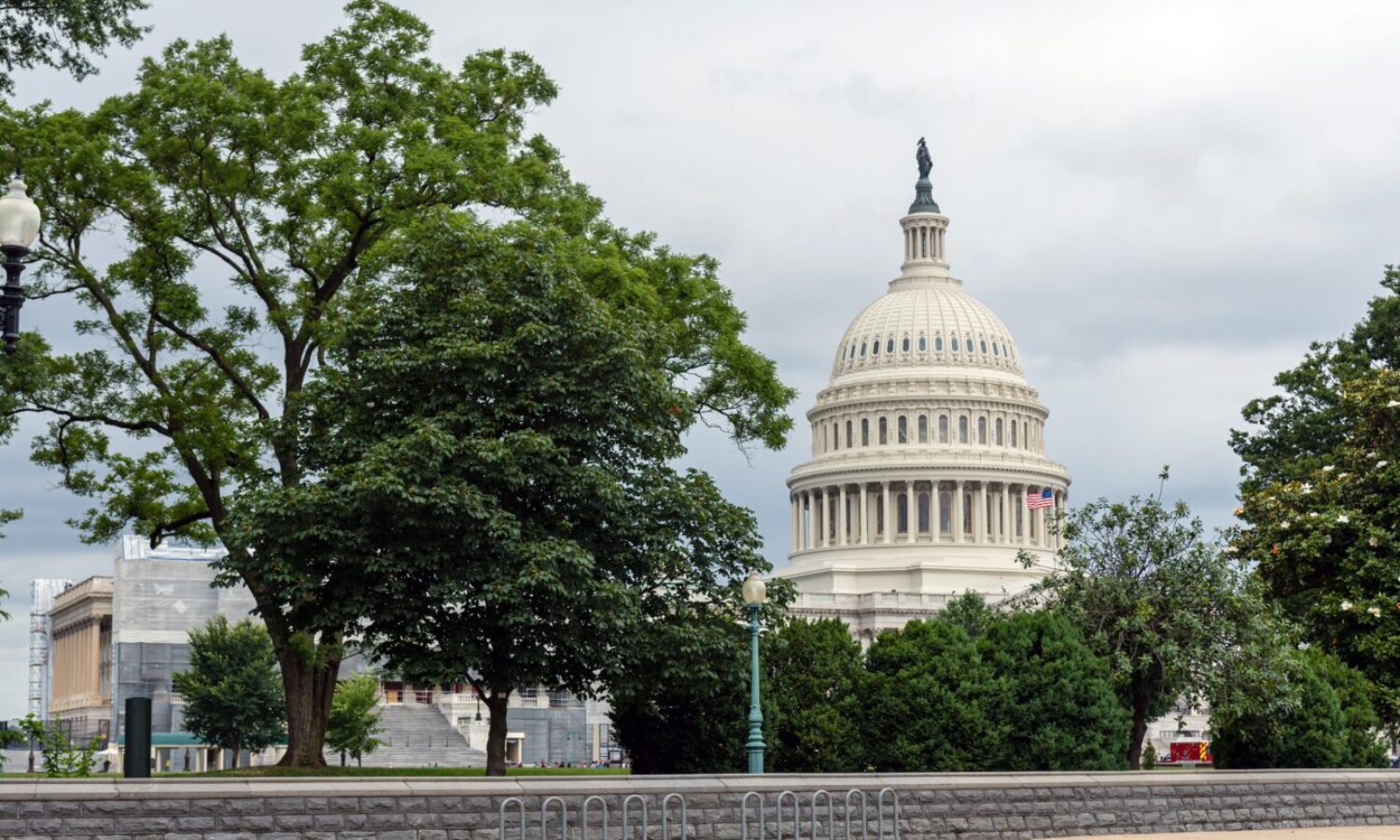i2Coalition January 2024 Legislative Brief
Your brief update on important Internet policy issues
OUTLOOK
On January 18, Congress avoided another federal government shutdown threat by passing phased legislation to secure temporary funding of departments and agencies through March 1 (for Agriculture, Energy & Water, Transportation-HUD, and Military Construction) and March 8 (for Commerce, Justice & Science; Financial Services and General Government (which includes FCC, FTC); DOD; Interior; Legislative Branch; Foreign Operations; Homeland; and Labor-HHS). This stopgap measure, which President Biden signed into law, gives Congress more time to negotiate the final details of the twelve FY 2024 appropriations bills that are essential for providing updated 2024 budgets to federal government departments and agencies. If the twelve individual appropriations bills are not enacted by April 2024, an automatic 1% across-the-board cut is triggered under the budget deal signed into law in the spring of 2023. Separately, Congressional leaders have been occupied with ongoing, complex negotiations on a supplemental national security funding package seeking, among its major components, more aid to Ukraine and Israel and stronger security at the U.S.-Mexico border. House Republicans are pursuing impeachment proceedings against Department of Homeland Security Secretary Alejandro Mayorkas (based on his alleged failure to manage the southern border) and President Biden (alleging corruption involving his family’s foreign business dealings while Biden was Vice President). The states’ primary elections and caucus processes to determine the official Republican party and Democratic party Presidential nominees kicked off in January. Many more state primary elections lie ahead before the Republican National Convention in July and the Democratic National Convention in August. Former President Donald Trump has maintained frontrunner Republican Presidential candidate status while he defends himself in multiple pending legal cases. President Biden, the expected Democratic nominee in 2024, will deliver the State of the Union address before a joint session of Congress on March 7.
TECH POLICY PRIORITIES
Section 230/Intermediary Liability/Content Moderation. The Senate Judiciary Committee held a contentious Jan. 31 hearing at which the CEOs from five prominent social media platforms (Meta, X, Snap, TikTok, and Discord) testified about the continuing risks and prevalence of child sexual abuse material (CSAM) online. By holding this high-profile hearing, Senate Judiciary Chair Durbin (D-IL) and other Judiciary Committee members aim to build momentum for moving a package of child online protection and safety bills to the Senate floor for a vote. The package could include the Kids Online Safety Act (KOSA) and the STOP CSAM Act. Judiciary Committee Ranking Member Lindsey Graham (R-SC) has announced his intention to help efforts to pass that package of bills this year. Sen. Grahan seeks inclusion of the EARN IT Act in that package and also plans to introduce and seek rapid Senate approval of legislation that would repeal Section 230.
Federal Privacy. Plans for passing comprehensive federal consumer data privacy and security legislation during this Congress have not been revealed to date by the House or Senate. In this Presidential election year, the legislative calendar for doing so is limited. It remains to be seen how the growing use and visibility of artificial intelligence technologies will affect the prospects for comprehensive federal privacy legislation. State legislatures have dominated action on consumer data privacy and security legislation and the enactment of new laws. Meanwhile, the FTC is accepting comments by March 11 on proposed amendments to its rules implementing the Children’s Online Privacy Protection Act (COPPA) in response to changes in technology and online practices.
Copyright/IP. Legislation has been introduced, and hearings are underway to address the implications of AI on IP rights. The NO AI FRAUD Act of 2024 was introduced in the House to prevent the unauthorized use of an individual’s likeness or voice by creating a property right, akin to a form of IP rights, in such items. The House Judiciary IP Subcommittee will hold a field hearing in Los Angeles on Feb. 2, addressing identity protection in the age of AI. In late December, The New York Times filed a copyright infringement lawsuit in federal district court against OpenAI and Microsoft for allegedly using millions of the TImes’ newspaper articles without permission to help train chatbots.
Antitrust/Competition. The U.S. Dept. of Justice (DOJ) and the Federal Trade Commission have issued updated guidance to companies regarding the preservation of documents sought in government investigations. The DOJ reportedly plans to file a lawsuit against Apple in the near future, alleging that the company has imposed software and hardware limitations on its iPhones and iPads to impede rivals from effectively competing.
Broadband. The FCC received reply comments in its Open Internet rulemaking on January 17 and is working to develop the final rules and a report and order to be voted on by the full Commission later this year, after which federal litigation is anticipated. Congress is grappling with the future of the Affordable Connectivity Program (ACP), which has assisted nearly 23 million low-income households in paying their monthly Internet bills and was codified as part of the 2021 infrastructure law. The funding for the ACP will expire this spring, and the FCC has started winding down the program. The ACP reportedly needs at least $6 billion to keep running through the end of 2024. The NTIA accepted comments on the National Spectrum Strategy (NSS) in early January and expects to release an implementation plan for the NSS sometime in March.
Find Out More…
For more in-depth updates on Internet policy, including issues that specifically impact your organization, please contact us about joining the i2Coalition.

